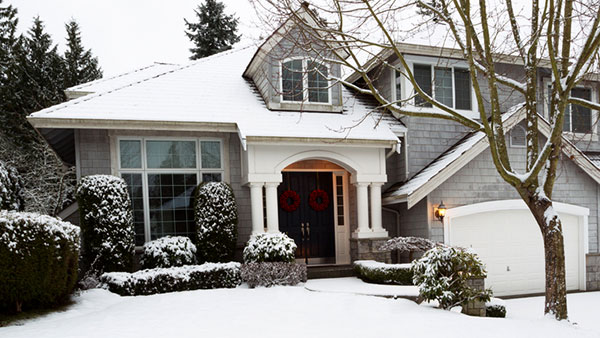
Whether you stay home or “fly south” for the winter, prepare your property for cold weather.
While even the best forecasters cannot guarantee what’s ahead this winter, now is the time to prepare yourself and your home for the coming season.
In recent years, record low temperatures caused pipes to freeze in areas that seldom get cold enough to experience the worst of winter. Homeowners who “fly south” for the winter are familiar with the idea of winterizing to guard against freezing while they are gone. However, with weather patterns shifting, homeowners who stay home for the winter are finding there can be issues with freezing pipes, even though they are living in their home and running water daily.
Start by inspecting your home, looking for areas that could be vulnerable to cold air intrusion and freezing. Find out where your pipes run, paying special attention to areas along outside walls and in crawl spaces. Know where your shutoff valves are located. Identify and label your main water shutoff in case a pipe freezes and you need to shut off your water supply quickly to avoid water damage.
The University of Illinois Cooperative Extension Service offers tips on how to prepare for cold weather and prevent pipes from freezing.
WINTERIZE YOUR PIPES
If you’re staying in your home and not traveling south for the winter:
- Be sure all plumbing is unclogged and running well before freezing weather hits.
- If certain rooms have pipes located on outside walls, let the sink associated with this pipe drip constantly when temperatures drop below 20 degrees Fahrenheit.
- Insulate floors over crawl spaces or unfinished basements.
- Add insulation in unfinished attics.
- Wrap any pipes that run through the garage, basement or unheated areas with extra fiberglass or foam insulation pipe wrap.
- The water main to the street should be buried below the frost line. If you know yours is not, keep at least three faucets dripping when temperatures drop below 20 degrees F.
WHEN LEAVING TOWN
The biggest threat for frozen pipes is in buildings that are not occupied during cold spells. If you’re out of town for the winter or over a cold weekend:
- Add a low temperature sensor to your central station or monitored alarm system to alert you to dramatically low temperatures in the home caused by furnace and heating source malfunctions.
- Keep the heat set at a minimum of 55 degrees F.
- Wrap any pipes that run through the garage, basement or unheated areas with extra fiberglass or foam insulation pipe wrap.
- If possible, drain all water from your pipes prior to leaving.
- Many property management companies can professionally winterize your home before you leave for the sunny south!
This loss control information is advisory only. The author assumes no responsibility for management or control of loss control activities. Not all exposures are identified in this article. Contact your local, independent insurance agent for coverage advice and policy service.
